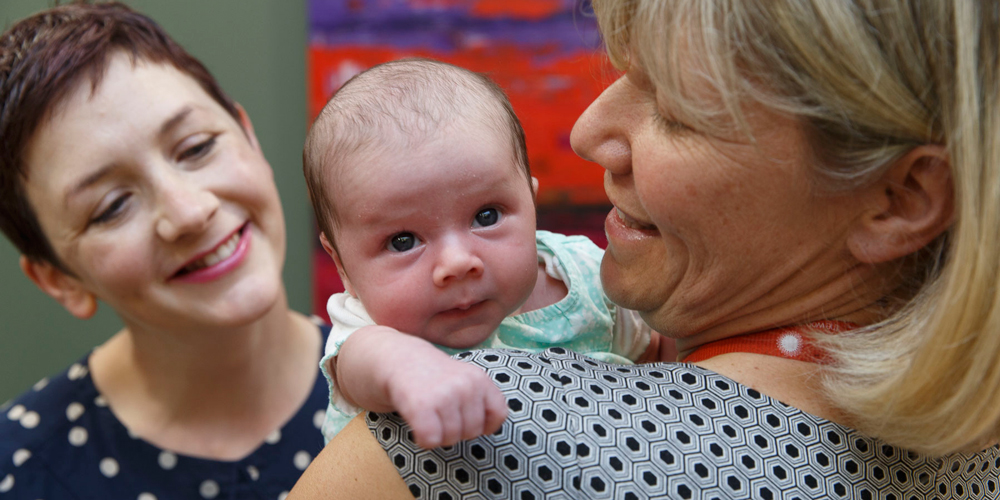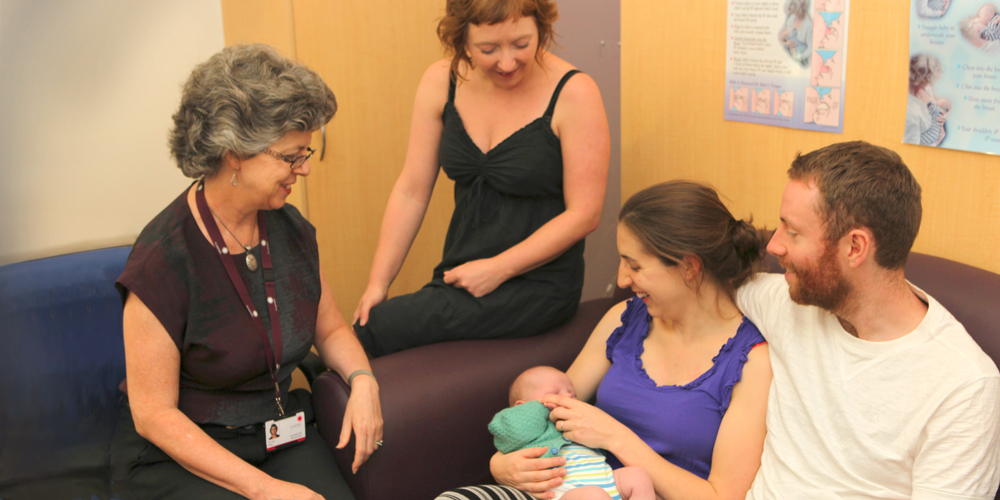
The Women’s and La Trobe University have published a study in BMC Pregnancy and Childbirth that found that women who receive care from a primary midwife were far more likely to be satisfied with all aspects of maternity care – pregnancy, labour, birth and postnatal care.
The primary midwife model (or ‘know your midwife’) involves women being looked after by the same midwife (or a back-up) throughout pregnancy, birth and in the early postnatal period.
The COSMOS trial - Comparing Standard Maternity care with One-to-One Midwifery Support - is the world’s largest clinical trial of its kind. More than 2,300 women at low risk of medical complications took part.
It found that compared with women who received standard maternity care, women who had care in the ‘primary midwife’ model were more satisfied with all aspects of the care.
They were also more likely to rate the care they received during their pregnancy, labour, birth and after the birth as being safe and competent, and were happier with the physical and emotional support they received. During the early days after the birth, women also reported being more satisfied with the support and help they needed to care for their new baby.
The findings add to previous findings from the study that showed that women who received care from a primary midwife were less likely to have a caesarean birth, an epidural for labour and receive an episiotomy, and that their infants were less likely to be low birth weight or to be admitted to the special care nursery. Women also had a more positive experience of labour and birth, including feeling more in control, coping better physically and emotionally and being less anxious.
The paper’s lead author, Professor Della Forster (from the Women’s and La Trobe University) said: “this type of maternity care clearly has many benefits for mothers and babies”.
Prof Forster is the Women’s Director of Midwifery and Maternity Services Research. The Women’s Executive Director, Nursing and Midwifery, Assoc. Professor Tanya Farrell, was also an author.
Professor Helen McLachlan, a co-author from La Trobe University said: “What maternity care providers and policy makers really need to focus on is increasing the availability and access of the model, as currently it is only available to around 8% of women across the country”.
